Bursary Reports 2023
A Month at the Diving Diseases Research Centre, Plymouth
Matthew Hegarty
I would like to pass on my sincere thanks to all members of the Kidderminster Medical Society for their very generous elective bursary. This has enabled me to explore an area of medicine which I simply would not have been able to experience otherwise, please see below a brief account of what I was able to get up to. Should any members have any queries or want to know more about what I got up to and diving and hyperbaric medicine in general, I am more than happy to answer any questions and can be contacted at: hegartymk@cardiff.ac.uk.
In March 2023 I have been fortunate enough to spend a month at the Diving Diseases Research Centre (DDRC) in Plymouth, a hyperbaric medical facility which offers emergency advice and treatment to patients with diving related illnesses or iatrogenic gas emboli, routine hyperbaric oxygen therapy to patients with a variety of conditions, and medical assessment of commercial and recreational divers, in addition to a wide range of professional training courses.
During my time at DDRC I was able to see a large variety of patients ranging from a patient requiring hyperbaric oxygen therapy (HBOT) whilst intubated following iatrogenic venous gas embolism to an elective patient with sudden sensorineural hearing loss. It has been fascinating both learning about the underlying physiology and clinical science behind the use of hyperbaric oxygen and seeing symptomatic improvement in patients for whom there is no other medical intervention able to help them. Whilst DDRC has a contract from the NHS to offer emergency provision of HBOT to certain patients, it maintains a charitable arm which offers treatment to these elective patients for whom the evidence base suggests HBOT could offer some real benefit. This includes patients with slow-healing wounds, postradiotherapy osteoradionecrosis, post-radiotherapy proctitis, sudden sensorineural hearing loss, and necrotising otitis externa – a comprehensive list of conditions for which HBOT is indicated can be seen in the results of the European consensus conference for hyperbaric medicine (Diving and Hyperbaric Medicine, 47(1):24-32. March 2017).
Whilst these elective patients provide both good clinical outcomes and serve as great way to maintain staff competencies and maximise use of the facilities, the core of DDRC’s clinical purpose is to treat emergency cases. This predominantly takes the form of divers with decompression illness (DCI). DCI encompasses a broad span of symptoms ranging from arthralgia to severe neurological disability and is caused by either evolved or escaped gas released into the bloodstream as a result of changes in the ambient pressure. Patients can self-refer to DDRC via the British Hyperbaric Association helpline, they are also often referred in by emergency departments and diving centres if they prevent there first. Treatment consists of emergency recompression whilst breathing an FiO2 of 100% to recompress bubbles and oxygenate tissue rendered ischaemic by bubble emboli. If recompression is achieved soon enough after onset, then patients can often achieve complete resolution of their symptoms. DDRC is one of just ten centres in the UK approved to provide this emergency treatment.
In addition to this clinical side, DDRC provide many different professional training courses. This includes first aid courses for commercial divers and offshore workers, training on the use of hyperbaric chambers, and the Diving Medical Advisory Committee (DMAC) courses for doctors. The DMAC course 1 and 2 are for doctors with an interest or who wish to specialise in diving medicine and qualifies them to provide both commercial and diving medical certificates or to go on and work as a diving doctor. The courses, which I was fortunate enough to observe, covered a mix of clinical science and practical management of diving related medical conditions as well as insight into the practical aspects of recreational and commercial diving. It was attended by a broad representation of doctors including occupational medical consultants, doctors working at hyperbaric chambers, and military doctors from several different countries.
Overall this was a fantastic experience which exposed me to a whole new aspect of medicine which I never would come across within my clinical placements at medical school. Applying medicine to the context of diving enabled me to develop my lateral thinking and problem-solving skills in addition to forcing me to consider common pathologies in a very different way. For anyone interested in learning more about diving and hyperbaric medicine I would recommend the following: •
Matthew Hegarty
Nepal Elective Report
Alexandra Colebrook
Firstly, I would like to thank the Kidderminster Medical Society for the invaluable and generous support for my medical elective to Kathmandu, Nepal.
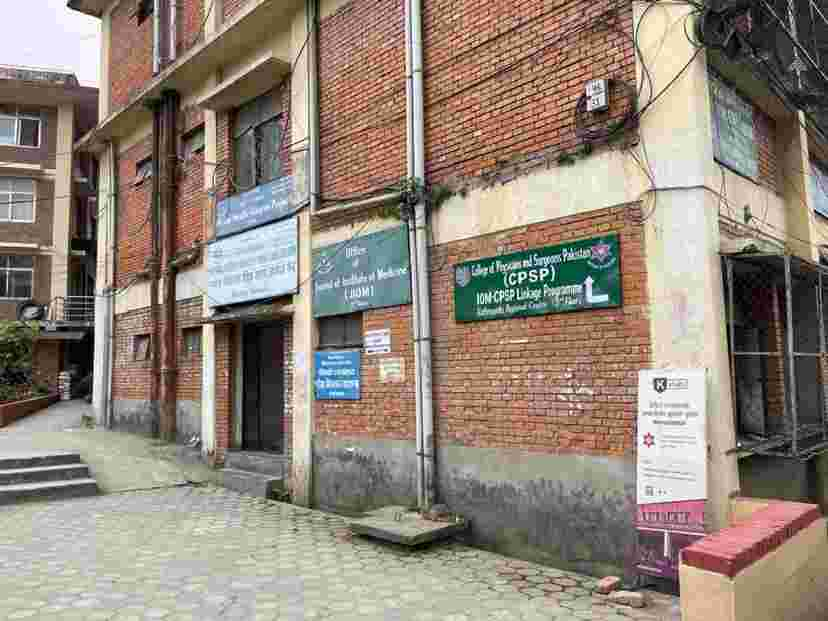
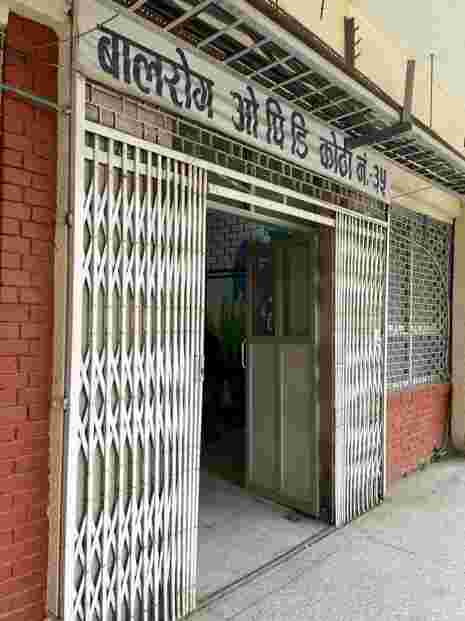
I began my elective on the Easter Bank Holiday at a time that was cold and wet in the UK. In contrast, my arrival in Kathmandu on the Sunday morning was already in excess of 25oC. To say I was overdressed for the heat would be an understatement. However, I was baffled to see all the locals in long sleeves, trousers or long skirts, and even the occasional beanie or hoody. Our Work the World guide instructed us that this was early summer for Nepal and the temperature was in fact cool for them. Within an hour of arriving in Nepal I was already being surprised by the cultural differences.
My first full day was spent being shown the city of Kathmandu and how to obtain a local SIM card and local currency. Having data access on your phone in Nepal is a must to be able to navigate around and utilise the local taxi service Pathao. It also became invaluable while on placement as there were no computers in the Tribhuvan University Teaching Hospital (TUTH) wards, so personal internet access was key! Some things weren’t so different between countries as the doctors searched for treatment guidelines and drug dosing on their phones.
This brings me nicely on to the TUTH itself. The hospital itself has been operating since 1982 and is the largest hospital in Nepal, with patients travelling across the country to attend. It predominantly operates as a private service, but it is one of the few hospitals in Kathmandu that has governmental subsidies for treatment. However, this subsidy is minimal, and patients’ families must bear the brunt of the cost of healthcare, otherwise known as “out-of-pocket payments”. The doctors would write a list of medicines and items such as cannulas, dressings, and syringes, for the families to purchase at the pharmacies outside the hospital grounds, which the nurses would then administer upon their return.
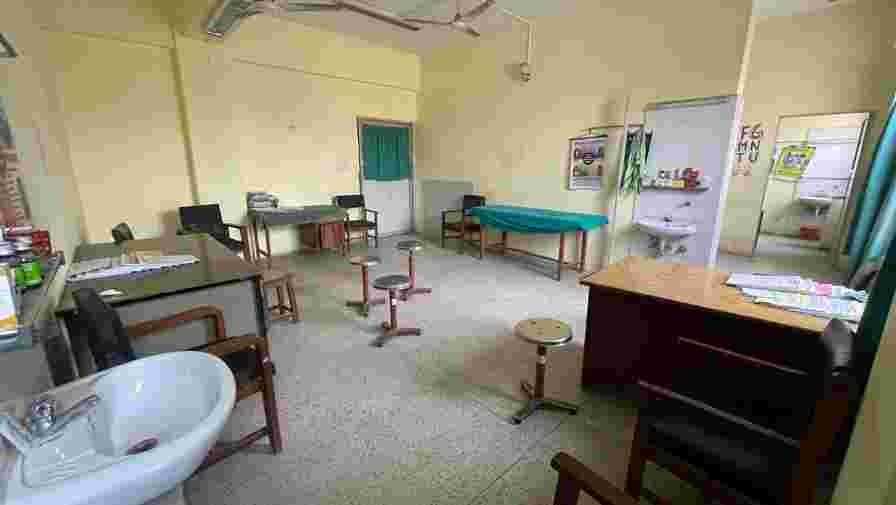
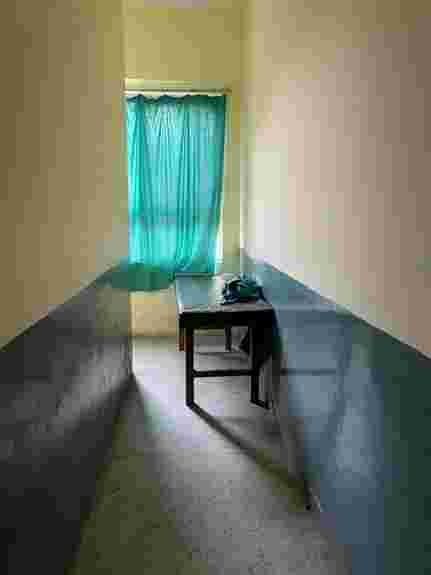
I spent 3 weeks of my elective observing the paediatric team ‘Unit 1’. We would arrive at 9am for an hour’s teaching, which could either be a presentation by primary residents on a topic, a case presentation, or an audit. From these I learned:
· Rheumatic fever was still prevalent in country, mostly due to delayed presentation or inability to afford the treatment.
· Common but self-resolving skin conditions in neonates.
· The effects of chronic kidney disease in the Nepalese paediatric population and the treatments available. Only the affluent could afford a kidney transplant, but dialysis was government funded.
· Nepal is much better than the UK in its waiting times for diagnosis of neurodisability such as ADHD and autism but lacks any system to support them beyond diagnosis.
· Respiratory support for a pre-term newborn.
There were many interesting conditions I saw in both the ward rounds and outpatient appointments. Ward rounds and notes were in English, so it was mostly easy to follow what was going on and therefore understand the conditions I was seeing. Some of the conditions were those commonly seen in the UK, such as gastroenteritis, respiratory conditions such as croup and bronchiolitis, chronic kidney disease, immune thrombocytopenic purpura, autism, Down’s syndrome complications, cancers. However, they were often in a further stage in the disease process or had a poorer outcome. For example, kidney transplants were not commonplace, often only available for the wealthy, with increased likelihood of post-surgical complications due to the lack of proper infection protection and control measures, as well as the affordability of follow-up health care. I was also able to see some other cases not so common to a district paediatric hospital in the UK; malrotation of the gut in a newborn, Kasabach Merritt syndrome, and cardiac symptoms due to rheumatic fever.
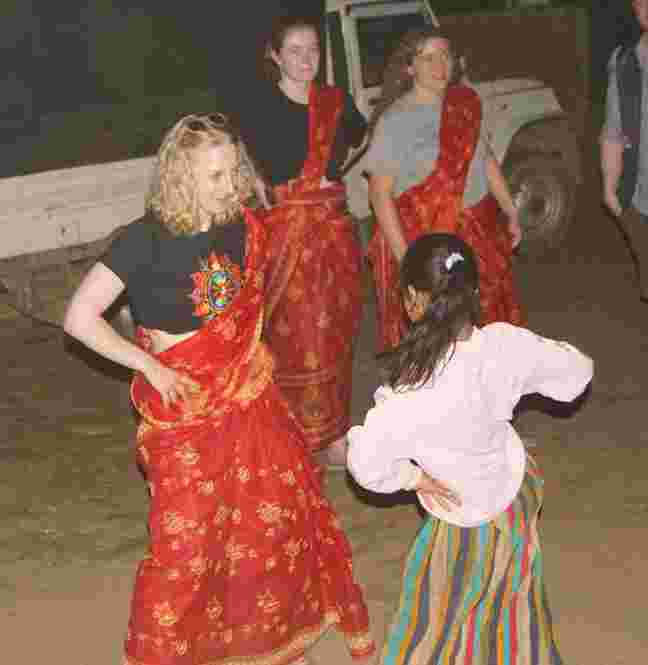
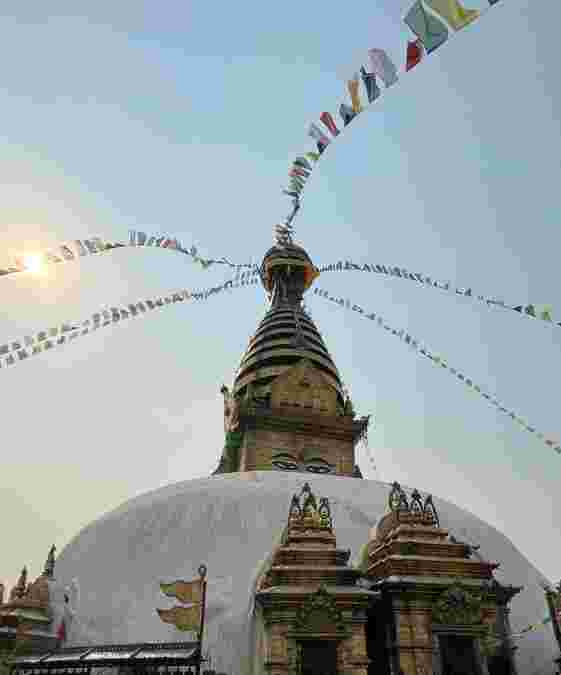
Although ward rounds were usually easy enough to follow, the outpatient’s department was another matter. With 8 doctors in a single room, all the doctors from the unit including the interns would see and review all outpatients. There were not specialist paediatric services here. The patients would queue up in the morning and someone would direct them to a doctor. There were no screens, no private space, and only one stool. Bear in mind that the child may be accompanied by two or three members of their family. Shortly after their arrival, a second family would be standing right beside me waiting their turn and clearly listening to the first consultation. Privacy was of little concern in Nepal. The rapid turnover as consultations being discussed in Nepali meant I followed very little and there was rarely time for the doctor to explain. However, I could pick up a few words by week two, and I helped out by keeping the small children entertained by making a balloon animal out of gloves or letting them play with my smart watch.
However, it was not all doom and gloom on the paediatric front. Nepal exceeds the UK in terms of the uptake of child immunisation programmes, with 6 districts obtaining 99.9% coverage. With almost all the WHO recommended vaccines being issued and fully funded by governmental programmes. The senior doctor in my Unit was keen to educate the other doctors on the importance of providing vaccinations of pneumococcus, influenza, and varicella in the immunocompromised, and highlighting the antibiotic resistant bacteria prevalent in the department and what the treatments should be.
For the exploration of Nepal, I was fortunate that it has a rich history and student budget affordable tourism. I visited the Safari reserve in Chitwan for a weekend, I visited the Temples around Kathmandu, and took the cable car up Chandrgiri.
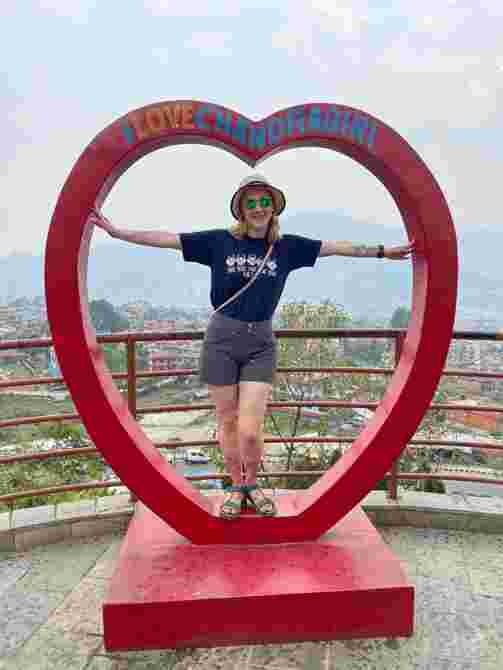
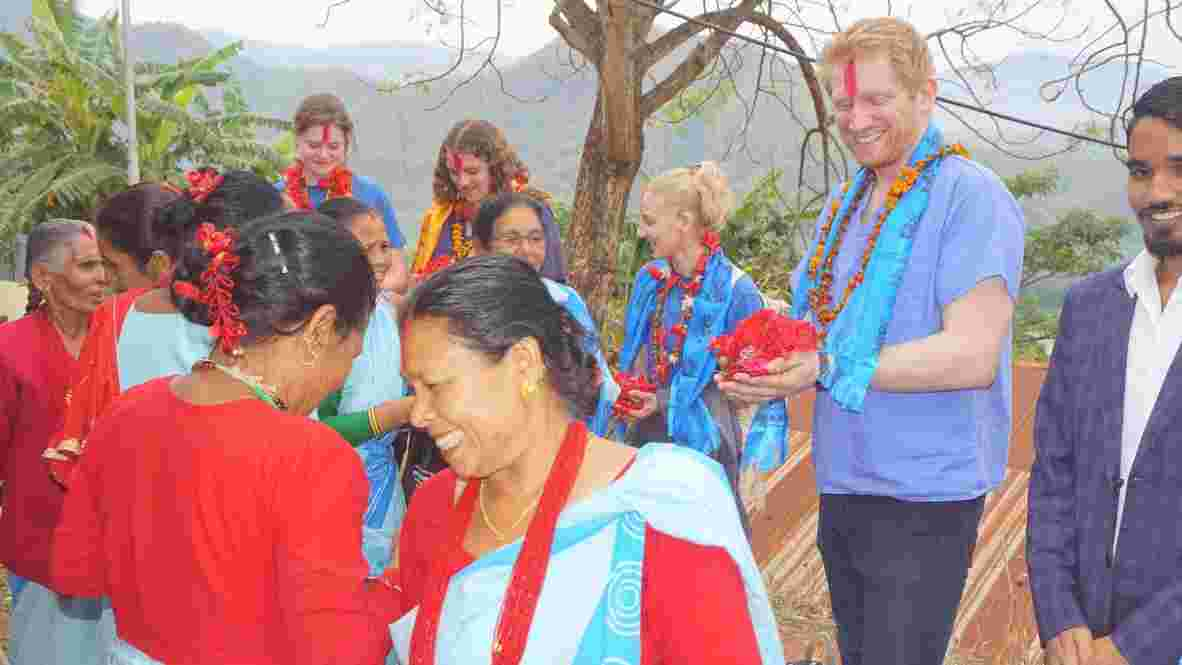
I finished off my time in Nepal with a week spent at Nuwakot village at the
Heath Post, about 50km from our house in Kathmandu, with a host family and 3
other students. As there were 2 bank holidays during our week there so we
only spent 3 days at the health post. The first day was incredibly busy. All
the health volunteers from the surrounding villages were there in
traditional dress and gave us a Hindu welcome.
There are no general practice services in Nepal, instead Health Posts are usually government/charity funded positions in rural areas staffed by nurse/midwife practitioners, paramedics, and health care assistants. They can issue vaccinations, basic antibiotics, and provide basic wound care. However, anything more complex required the advice to visit the hospital in Kathmandu. The staff were friendly and deferential, and they were clearly trying to make the best of what they had. All donations of medications from Work the World were received graciously.
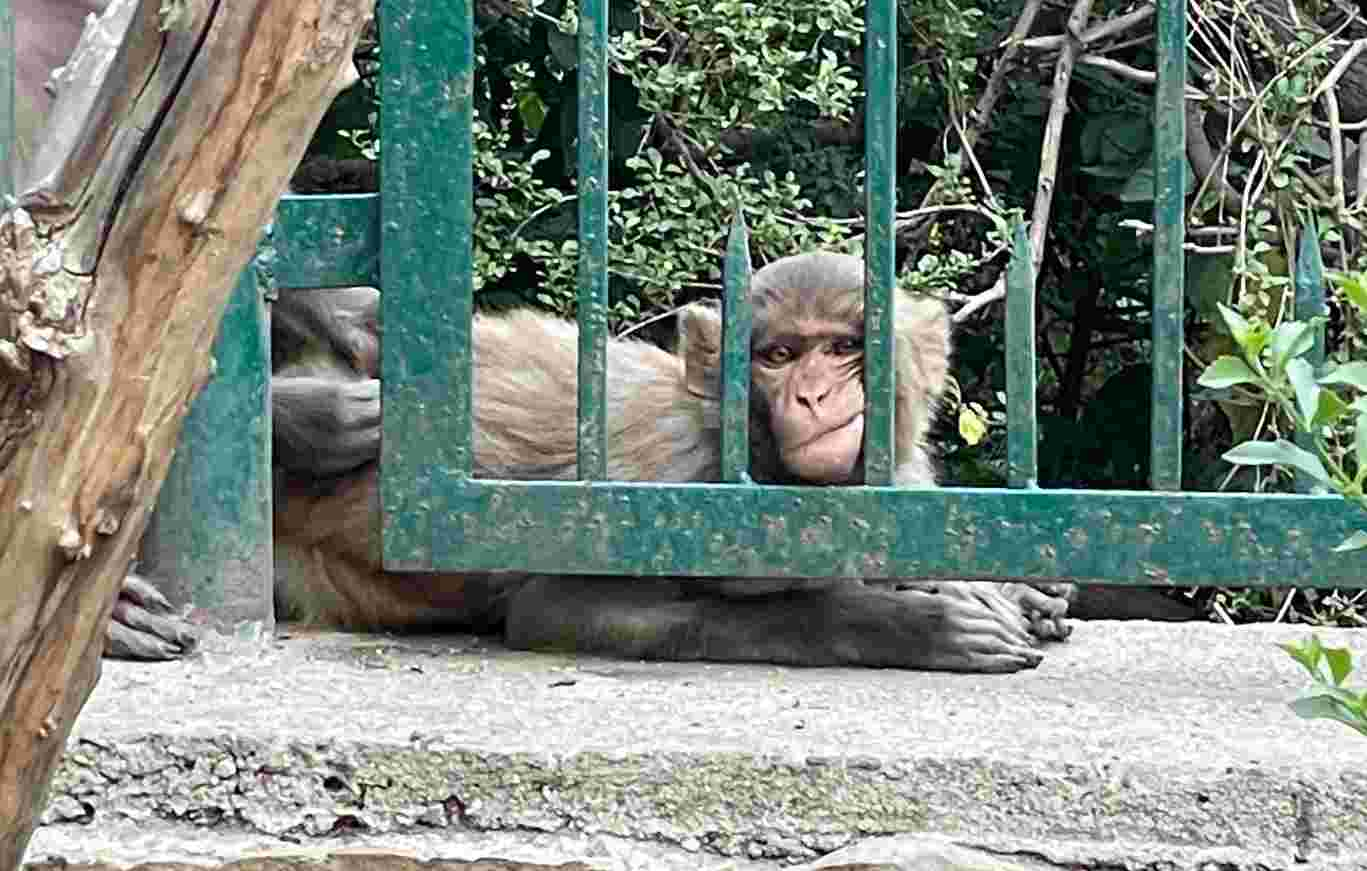
During my time in Nepal, I found the support from the Work the World staff invaluable to my enjoyment of the placement as well as getting to know their home country. I am unable discuss all of the experiences I had during my four weeks in Nepal, or this would become a novel. Nepal has a rich culture and a medical experience that will remain with me always.
Alexandra Colebrook
Brooklyn Clarke
A GP in Rural Shetland
A few days into the second half of my 5th year elective, based in rural UK healthcare, when I found myself in the back of a community ambulance, feeling uncomfortably nauseous. The ferry was rolling in all directions as we embarked on an extremely rough inter-island ferry crossing over to mainland Shetland. Our mission was to transfer a patient, one of the 1100 people living on Whalsay, to the local hospital as the lab had reported a Hb level of 42 that morning. As local residents of the island, the 2 voluntary paramedics and the patient chatted cheerfully, yet were taken aback after I declined their offer of sweets for the third time during the crossing. I anxiously deciphered an escape plan in case of the sudden need to find a toilet, a bucket, or the side of the ferry, whilst simultaneously craning my neck in order to not miss an opportunity to sight a whale or an otter through the small porthole (staring at the horizon is one of the first rules of seasickness after all).
The view from the ferry, back towards the island of Whalsay (pronounced ‘wallsa’, known as the ‘bonnie isle’) captured everything I had wanted from my elective- a rural placement in a small, tight knit community, which relies on the knowledge, teamwork, and breadth of skills of not just the medical professionals, but the whole Island community. Working closely alongside the team at Whalsay Medical Centre, enabled me to be embedded into the community and really understand the unique provision of healthcare in this truly rural setting.
Whalsay, the 6th largest Island of Shetland (not ‘The Shetlands’), is 5 miles long and lies at 60 degrees latitude, x miles off the northern tip of Scotland. A thriving fishing industry, and home to the largest fishing boats in the UK, Whalsay is a wealthy island, yet cut off from the mainland Shetland by a 30-minute ferry crossing. Whalsay Medical Centre is supported by 8 different General Practitioners (GPs) that each stay on the Island for 2-3 weeks at a time, on rotation throughout the year. With no Emergency Department or state funded ambulance provision near, it is the responsibility of the GP on the island at any given time to provide 24-hour medical assistance as required. However, you would be mistaken if you thought this was a solo effort; soon after talking to the receptionists at the health centre and hearing the tales of patients being evacuated via fishing boats in heavy weather, you quickly understand the sense of togetherness that is at the heart of this community.
Although the summer months will see many bird watchers and walkers visit Whalsay, and golfers keen to play on the UKs most northerly course, with no hotels or commercial accommodation available, tourists staying overnight on the Island is rare. Luckily, a bit of insider knowledge enabled me to secure a chalet owned by one of the residents on the Island. A brief chat with the owner and I was assured there was somewhere to stay, all be it with no WiFi or Booking.com advertisement to refer to. I headed across on the ferry for the first time, excited and apprehensive about the trip, with instructions to consult the men working on the ferry for directions to the chalet. Dated, yet warm and comfortable, complete with tea cosies and many hot-water bottles, the accommodation was the perfect base. Sitting in the armchair, I had near panoramic over the port of Symbister, the fish farm and hills to the right, and the medical centre just visible at the top of the hill.
My commute into the practice was a mere 15-minute walk up the hill, passing a bay which nearly always had 2 or 3 seals playing in the shallows, to arrive shortly before 9am in the morning. Now, one thing that you should know if you are to ever visit the island, or other small island in Shetland, is that it is common courtesy to raise a hand in greeting at every passing car or pedestrian. As big-city, urbanised citizens, it can feel forced and unnatural at first, but it quickly becomes a pleasant part of the day. As it turns out, it is also a difficult habit to get out of, to the horror and bewilderment of fellow commuters around Southmead Hospital in North Bristol. And so, after having made 20 or so new friends on my walk in, I would enter the practice to greet the receptionists, the nurses, and the GP.
Days in the clinic passed easily, and although appointments were similar to other village GPs I have been in, clinic lists are a fraction of what you would normally expect, and a much greater proportion of patients are seen as home visits. It was the norm for patients to have same day appointments for non-emergency presentations, and many of the locals have the direct landline to the GPs accommodation on the island for advice out-of-hours. One of the more memorable patients that demonstrated this time-pressured free approach to general practice quite aptly, was a man with multiple sclerosis seen as a home visit. After complaining of difficulty opening his bowels, the GP prescribed some laxatives. Lo and behold, later that afternoon, the GP received a phone call to confirm that the laxatives had done the trick. It was refreshing to see a GP that operated as a true community practitioner, to help with ails and ailments alike, in a world that seemed so far from the stresses of targets and time constraints that seem to monopolise nearly all other GPs. In many ways, Whalsay Medical Centre seems to demonstrate a way of practice that I feel other urbanised communities within the UK are craving for and desperately trying to hold onto.
Community care resonated through the relationship between the Medical Centre and the local care home, where the GP will visit to do a mini ward-round roughly every 2 weeks, working closely with the nursing staff and checking in with the patients. During my placement, I was given the responsibility of consulting and examining the patients on my own, before reporting back and accompanying the GP for the more formal review. The care home was a great way to test the progress of my understanding of the Whalsay dialect. Influenced heavily by both Scottish and Scandinavian occupation, the Shetland dialect alone is unique. The Whalsay dialect however, that seems to be preserved by generations on generations remaining on the island, often resulted in me being left completely in the dark during the tales of the morning coffee breaks in the GP practice. None-the-less, the care home was a unique and privileged insight into life for locals on the Island.
Culture and tradition on Whalsay are not better demonstrated than through the fishing community, which, as I have already alluded to, is big business on Whalsay. Either through processing, working on fish farms or in the pelagic and white fish fishing boats, many of the young men visiting the GP practice will be often involved in fishing in some form. This presented a few slightly different aspects to GP than a standard mainland centre. Firstly, people involved in fishing often worked in shifts, giving GPs a window of 2-3 weeks in which to diagnose, manage and treat any illnesses or diseases before workers left the island again. Additionally, the GP acts as a lifeline for any Whalsay registered vessels at sea, it is paramount that the GP knows the medical equipment and competencies of the crew on board a vessel to offer support and to help manage casualties remotely.
Towards the end of my trip, drawing a sense of completeness and of natural ending to my experience, I visited the lady that I had earlier accompanied over to the mainland in that bumpy ambulance trip. I was happy to see her looking well and eagerly reporting that she is feeling much better following treatment in Gilbert Bain Hospital, which, as a side note, is a very small hospital with no intensive care unit or magnetic resonance scanner. With only 1 medical ward and 1 surgical ward, which contains the 2-bed high dependency unit, if you are going to get really sick on Shetland, expect a swift medical evacuation to Mainland Scotland, weather dependent of course.
After 2 short weeks and with a brand-new Fair Isle jumper to commemorate my travels, it was time to return to mainland Scotland via the overnight 13hr North Link ferry to Aberdeen. It is safe to say, that after many years of a self-professed immunity to seasickness, the North Sea and weekly gale-force winds battering Shetland are indeed humbling.
I cannot thank the whole team at Whalsay Medical Centre and the community as a whole for their support and welcome, and for making my elective on Whalsay so memorable. I can’t wait to return and continue my quest for a whale sighting.
Brooklyn Clarke
To Kidderminster Medical Society Trustees
Cait Thornton
Thank you so much for your generous support through the postgraduate bursary during this past academic year. When I found out about this support from the Society, I was so happy that there existed groups which endeavour to support students from our local area to pursue medicine as a career. The decision to study medicine required deep consideration of the balance of investing into what I believed would be a fulfilling career and the financial opportunity cost of further study. I was incredibly fortunate to have been awarded this additional financial support which have tipped these scales in a positive way for me.
The academic year has been intense, but I have enjoyed the company of 28 other students who came with a wide variety of backgrounds allowing us to share expertise in our respective previous fields throughout the year. I have spent many days and evenings in the library but have passed all exams on the first take. The bursary from the Society enabled me to get by this year and focus wholly on forming a strong basis of human anatomy and physiology onto which I can build my clinical skills.
Having arrived at medical school with a medical research background after completing my PhD at Birmingham and postdoctoral fellowship in the US, I was eager to keep my hand in research. This summer I have joined a lab at Birmingham and have been helping Masters’ and Undergraduate Summer Students to learn new skills in the lab and complete their data collection and analysis. I have always enjoyed getting others into science and hope to continue to do this throughout my medical training. Next year I have joined the committee for Oncology Society and hope to develop networks with local oncologists through this role and learn more about the clinical side of the field in which I hope to build my career.
Once again, I am thankful to have received the support of the Kidderminster Medical Society at the start of my medical training.
Cait Thornton
Graduate Medicine Course at the University of St Andrews
Gemma Peters
Last year, I moved from Birmingham to start my graduate medicine course at the University of St Andrews. Due to having to wait for my A-level Chemistry result, this left me with only five days’ notice to sell an entire flats worth of belongings, quit my job, say my goodbyes and move up! Additionally, due to the housing crisis, I had to move up with only two suitcases and live on the sofa of two girls I had never met before. I connected with them on a facebook group for our course, and ended up staying on their sofa for a month. Thankfully we have remained close friends ever since, and I found a place of my own to move into.
Moving to Scotland has had its ups and downs…literally; I am very good at walking up hills now. From being in the dissection labs for the first time to seeing patients, this year has been very busy and I am amazed by how much you can learn in such a short space of time.
I am looking forward to the next academic year, where I will begin a series of rotations through Dumfries and Galloway, Inverness and various places in Fife. I will have blocks in adult, elderly, palliative, obs and gynae and paediatrics, with the aim being that by the end of the year I should be able to consult anyone walking through the door. The year will end with a 6 week block of emergency medicine, for which I am lucky enough to have been allocated a remote and rural placement which I am very excited for.
I want to thank Kidderminster Medical Society for their generous Graduate Medicine Bursary which has meant I have been able to spend less time working, and more time studying and making friends, and even enjoying a Guinness or two! It has also enabled me to continue activities I enjoy such as hill walking, climbing, and wild swimming to help me relax. This year I was delighted to find that I had been awarded a distinction following such a good work-life balance, and I am aiming for this achievement in further years.
Gemma Peters
A Wholehearted Thank You to KMS
Megan Larkin
I am writing to wholeheartedly thank you for the support that you provided me through my first year of studying Graduate Entry Medicine at the University of Birmingham. I have just completed my first year of study having passed all of my exams and assessments, and I am excited to progress to my next year of study and to begin my clinical placements in hospitals across the region.
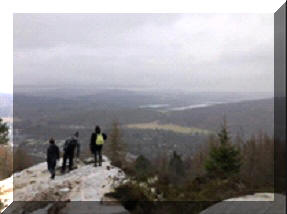
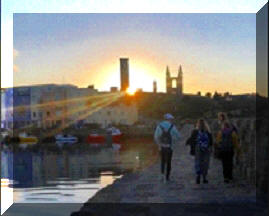
Throughout this intense first year of study I have learnt a great deal and had many opportunities to shadow and learn from some brilliant doctors, nurses and wider allied health professionals both on my GP placement and in University. Although the transition back to studies from working was always going to be a challenge, the bursary has allowed me to fully engage with my studies, massively reducing the number of hours I have needed to work alongside university. This has been invaluable, in hindsight I am unsure how I would have been able to complete this year without this support due to the intensity of the year and the sheer volume of content I had to learn and the time that this took.
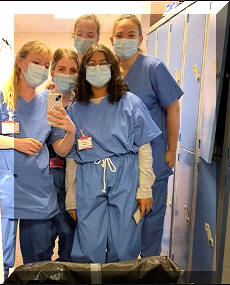
I have also managed to use this breathing space afforded to me by the bursary to complete a scheme to train to be a swimming teacher, which will be a sustainable way for me to support myself alongside my studies throughout the remainder of my education, with the added bonus of being a fun part time job that will help me develop skills that will be so useful as a Doctor! Without the support of the bursary, taking the time out of my summer to do this free programme would not have been possible, fortunately I have been able to work part time and do this scheme which will leave me in a good position for the years to come.
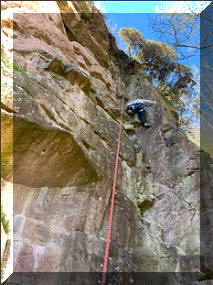
I would once again like to thank all of the trustees involved in the decision to give me the bursary, and for the continuation of it to help further students in the future. The support provided has enabled me to get the best foundation of my medical career and for that I am hugely grateful.
Megan Larkin
Grace Doyle
Challenges and Triumphs
I hope this letter finds you in the best of health and high spirits. As I sit down to write this, I can hardly believe that my first year of medicine has come to a close. It has been an extraordinary journey, filled with both challenges and triumphs, and I owe much of my success to your incredible generosity and support through the bursary you provided.
From the moment I set foot in the medical school, I knew that I had embarked on a path that would test my limits both academically and emotionally. The countless hours of studying, the practical training, and the intense clinical experiences have shaped me into a more resilient and compassionate individual. The opportunity to learn from dedicated lecturers and work alongside medical professionals has been nothing short of inspiring.
My first year at medical school focused on building a strong foundation in the basic sciences and medical knowledge. In addition, every Monday we had the opportunity to interact with “PCPIs” (patient, carer and public involvement) which allowed us to develop our communication skills.
Your belief in my potential and your willingness to invest in my education have lightened the financial burden that comes with pursuing a career in medicine. Thanks to your bursary, I could focus more on my studies and experiences, allowing me to immerse myself fully in the course without worrying about the financial strain. I was able to achieve a merit, ranking within the top 10% of my cohort.
The first year of medicine has solidified my passion for this field, and I am more determined than ever to make a meaningful impact in the lives of patients and contribute to the advancement of healthcare. Your support has played a vital role in fuelling this dedication, and I am truly grateful for the doors of opportunity it has opened for me.
Once again, I want to express my sincere gratitude for your unwavering support throughout my first year of medicine.
Grace Doyle
Tabia Alam
Graduate Medicine Bursary report
In light of unfortunate circumstances I was required to discontinue my medical studies in the Ukraine and was fortunate enough to recommence them in the UK. The Kidderminster Medical Society bursary has greatly aided me in this transition. I am truly grateful to Dr Lewis and the trustees of the society for their generosity in selecting me and alleviating some financial burden. Their support has truly been invaluable to me.
Despite challenges in readjusting from undertaking clinical rotations back to primarily preclinical education, this academic year has been a beneficial review of previous theoretical material which I understand now in far greater depth. As my previous studies had also been affected by the COVID-19 pandemic and anatomy sessions with dissections were no longer routinely possible, the opportunity to carry out full body dissections has been invaluable in thoroughly visualising anatomy. I have also particularly enjoyed teaching other students to learn material by applying methods which had been useful to me previously – in turn acquiring an additional skill.
I have found that having been previously familiarised with many of the PBL cases, formulating investigations and management plans in a theoretical setting has strengthened my confidence of relating theory to true cases. I have also been able to identify where I lacked sufficient knowledge and remedy this. Additionally, remote GP placements have been particularly interesting to me as I had been previously unable to undertake them and thus, interacting with patients in primary care was a new experience for me which I greatly benefited from.
As I have already covered most of the academic material, I was fortunate to experience a fairly undemanding year, allowing me to invest more time into other interests such as literature writing. For valentines day I also found time to be able to create hand-made cards for some residents at a care facility I had the pleasure to encounter during an ageing and disability placement. Having this extra opportunity and time to connect with people alongside and beyond academic learning, has been truly insightful and heart-warming.
I strongly believe that any adversity I have faced will shape me into a more compassionate and resilient clinician.
I am truly grateful for having the opportunity to continue my studies and to the society for their support.
Tabia Alam
Abigail Warren
From Biomedical Science to Medicine
Without a doubt, the Kidderminster Medical Societies generous bursary allowance has made my transition into studying medicine a truly enjoyable experience.
As a mature student with a previous degree in Biomedical Science, returning to university was a daunting prospect, particularly in the financial sense. As tuition fee loans were no longer available being this was my second degree and with maintenance loans being just enough to cover the majority of tuition fees, I was increasingly worried about the cost of living alongside studying the demanding course that medicine is.
In truth, searching for financial aid as a mature student proved to be disheartening and the barriers that tuition and living costs pose were and continue to be a huge consideration in my pursuit of becoming a qualified doctor in the future.
It is hard to put into words how the bursary the society provided for me has helped in reducing the worries and concerns posed to myself and my family regarding returning to studies.
The bursary scheme is something I feel immensely privileged and proud to be a part of – this society is directly investing in the development of future healthcare professionals and can only be held in the highest regard.
Abigail Warren
Joshua Clarke
Summer Immersion in Bogota
As a recipient of the gracious bursary provided by the Kidderminster Medical Society, I am compelled to express my heartfelt gratitude for the invaluable support throughout my preclinical tenure at medical school. This financial aid has relieved the burdens associated with pursuing a graduate course and shaped my educational journey, contributing significantly to my personal and academic growth.
My engagement as the President of the Warwick Medic Squash Society has been an enriching chapter of leadership and collaboration. Leading and unifying fellow students has honed my leadership, teamwork, and time management abilities, which I acknowledge as indispensable in medicine.
The hands-on exposure during my placement at Warwick Hospital was an enlightening experience. Witnessing real medical scenarios and actively participating in patient care reinforced my dedication to medicine. The interactions with patients and practical application of clinical skills have reaffirmed my aspiration to become a proficient doctor.
The accomplishment of passing exams and achieving placement in the 3rd decile for the OSCE is a testament to my diligence and commitment to academic excellence. While I acknowledge areas for further improvement, this milestone has fortified my confidence and proficiency in the medical domain.
Crucially, this initial phase has solidified my conviction that medicine is my true calling. The hurdles I’ve surmounted, the lessons learned, and the experiences gained have strengthened my resolve to pursue a career in medicine. The sense of purpose derived from this path fuels my dedication and unwavering commitment to excelling in my studies and profession.
My summer immersion in Bogota, teaching English at a science-based bilingual school, was a transformative experience for my personality and language skills. Interacting with diverse cultures and sharing knowledge while taking in wisdom from others was profoundly rewarding. Additionally, establishing connections within the medical community during this period has opened doors for future volunteer opportunities, enabling me to contribute to underserved communities while broadening my medical horizons. I hope to return to Colombia to teach medicine-related topics at my former school and work as a medical professional in a Colombian healthcare setting.
None of these accomplishments and enriching experiences would have been feasible without the steadfast support extended by the Kidderminster Medical Society. Your bursary not only eased my financial concerns but also served as a constant source of motivation, urging me to pursue excellence and fulfil my aspirations relentlessly.
As I progress into the subsequent years of my medical education, I carry the invaluable lessons, experiences, and encouragement provided through your bursary. I am genuinely thankful for your unwavering support and belief in my potential.
Joshua Clarke
Ellie Ravenscroft
Southampton University Graduate Entry Medicine
I would like to extend my heartfelt thanks to the Kidderminster Medical Society for their very generous support during the past academic year.
I started my graduate entry medicine studies at the University of Southampton back in September 2022, unaware of what was going to be one of the most challenging but rewarding years of my life.
Within the first week we were on the wards taking a history from a new mother and getting to hold an hours-old baby! The whirlwind of the year continued throughout respiratory, cardiac, and GI blocks, ending fittingly on an insightful and powerful week on palliative care. I have thoroughly enjoyed being both on the wards and in the GP surgery, getting first-hand experience of meeting patients and the wider medical team.
This September I commenced my second year and in February 2024 we will begin our first full-time placement – something I am looking forward to wholeheartedly.
I feel incredibly fortunate to have benefitted from KMS’s bursary scheme which has allowed me to give more time to my studies and enjoy all that this new life venture has to offer. Once again, a massive thank you to Kidderminster Medical Society for their very kind support!
Ellie Ravenscroft
Motivation and Recognition
Tobias King
I am writing to express my heartfelt gratitude for the generous financial grant I recently received from your esteemed organization. This support has significantly impacted my journey as a medical student, and I am sincerely thankful for the opportunities it has provided.
Your grant has been instrumental in easing the financial burden associated with pursuing a medical education. It allowed me to acquire essential textbooks, online resources, and materials crucial for my studies. Additionally, it alleviated the strain of tuition fees and living expenses, enabling me to focus on my academic pursuits without constant financial worry.
Beyond the financial assistance, your support has been a source of motivation and recognition. Knowing that the Kidderminster Medical Society believes in and supports my educational endeavours has inspired me to strive for excellence. This encouragement has strengthened my commitment to excelling in my studies and contributing meaningfully to the medical field in the future.
The impact of the grant extends beyond the classroom, reaching into community service. With your support, I have been able to participate in community health programs and outreach initiatives. These experiences have enriched my education by providing practical, hands-on opportunities to apply classroom knowledge to real-life healthcare scenarios. It is a privilege to give back to the community, and your grant has facilitated my involvement in these valuable endeavours.
In conclusion, I want to express my sincere thanks to the Kidderminster Medical Society for investing in my education and future as a medical professional. Your generosity has made a significant difference in my academic pursuits and community service initiatives. I am truly grateful for this opportunity and look forward to contributing to the medical field, inspired by the support you have provided.
Thank you once again for your belief in aspiring medical students like myself.
Tobias King
Bursary Reports 2023